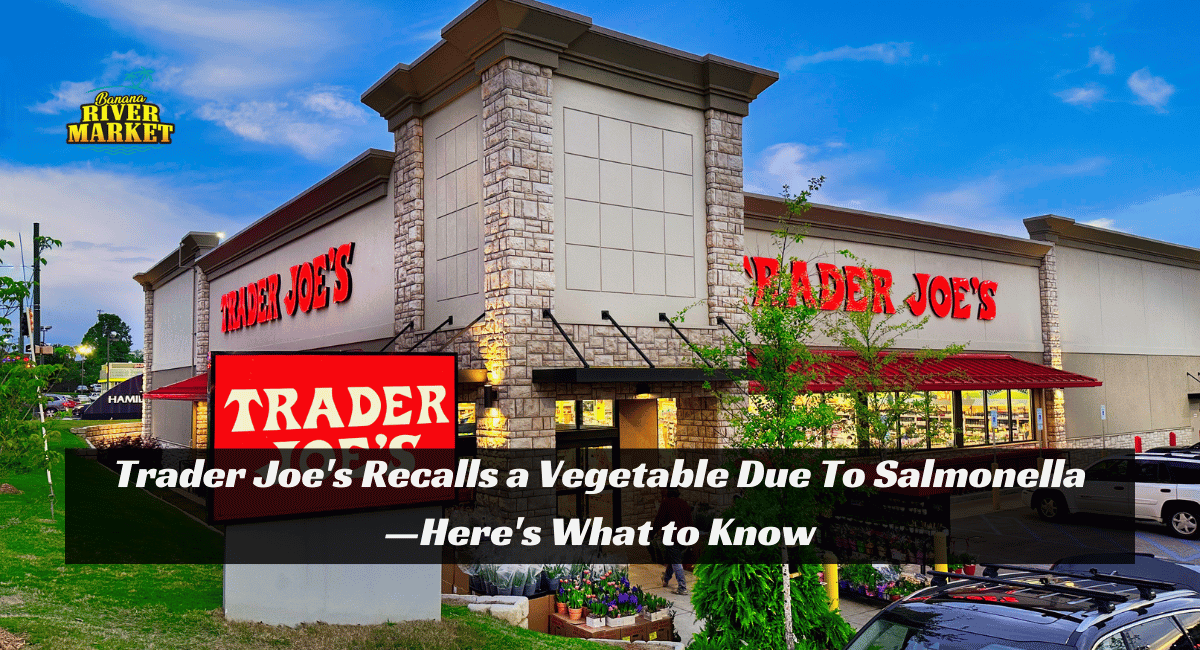If you recently shopped at Trader Joe’s, checking your produce is essential. The popular retailer has announced a recall of green onions due to possible salmonella contamination. Here’s what you should know to keep you and your family safe.
What’s Happening?
Trader Joe’s recalls green onions as part of a broader recall initiated by Church Brothers Farms, a well-known fresh vegetable supplier. This recall came after the Canadian Food Inspection Agency reported a positive salmonella test from a product sample. In total, approximately 1,271 cases of green onions are being recalled.
The recall affected green onions sold at Trader Joe’s stores in various United States and Canada locations. Trader Joe’s has taken steps to inform customers about this issue and urges caution for anyone who may have purchased these items.
Where Were the Affected Green Onions Sold?
The recalled green onions were distributed in Washington D.C. and 28 states, including:
- Alabama
- Connecticut
- Delaware
- Florida
- Georgia
- Iowa
- Illinois
- Indiana
- Kansas
- Kentucky
- Massachusetts
- Maine
- Maryland
- Michigan
- Minnesota
- Missouri
- Nebraska
- New Hampshire
- New York
- North Carolina
- Ohio
- Pennsylvania
- Rhode Island
- South Carolina
- Tennessee
- Vermont
- Virginia
- Wisconsin
If you live in these areas and have purchased green onions from Trader Joe’s, please check the packaging.
What Should You Look For?
The affected green onions carry a “pack date” of September 25, 2024. If you find this date on your green onions, do not consume them. Trader Joe’s advises customers to discard or return these items to any store for a full refund.
Other Brands Affected
The recall includes Trader Joe’s green onions, Church Brothers-brand green onions with lot code CB272378, and Imperial Fresh-brand green onions with the same lot code. Customers are encouraged to check their kitchens for these products and dispose of them immediately.
No Reported Illnesses—Yet
So far, no reported illnesses have been linked to the recalled green onions. However, the presence of salmonella can pose a serious health risk, especially for vulnerable groups. Salmonella infections can lead to severe symptoms and complications.
Understanding Salmonella Risks
Salmonella is a type of bacteria that can cause foodborne illnesses. While healthy individuals may experience only mild symptoms, specific populations are at higher risk, including:
- Young children
- Elderly individuals
- People with weakened immune systems
Symptoms of Salmonella Infection
If you suspect that you have consumed contaminated green onions, be on the lookout for symptoms, which may include:
- Fever
- Diarrhea
- Nausea
- Vomiting
- Abdominal pain
The CDC recommends contacting your healthcare provider if you experience any of the following:
- Fever higher than 102°F
- Signs of dehydration
- Prolonged symptoms lasting more than two days
- Blood in stool or urine
What to Do If You’ve Purchased Recalled Products
If you have the recalled green onions, here’s what to do:
- Check the packaging: Look for the September 25, 2024, pack date.
- Do Not Consume: If you find the recalled green onions, do not eat them.
- Dispose or Return: You can throw them away or return them to Trader Joe’s for a full refund.
- Contact Customer Service: If you have questions or need more information, contact Trader Joe’s customer service via email or (626) 599-3817.
For those who purchased Church Brothers or Imperial Fresh green onions, call the Church Brothers Farms Consumer Hotline at (877) 590-0428 or email consumerinfo@churchbrothers.com for further assistance.
Stay Informed and Safe
While this recall is concerning, it is crucial to stay informed and take necessary precautions. Always wash your produce thoroughly and stay updated on grocery store and food manufacturer recalls.
For further information on food safety and recall, visit the Centers for Disease Control and Prevention (CDC) website or your local health department’s resources.
Conclusion:
Trader Joe’s green onion recall reminds us of the importance of food safety. By staying aware and following guidelines, you can protect yourself and your loved ones from potential health risks. If you have any recalled products, take action now to ensure your safety.
READ MORE: Frozen Waffles & Every Other Major Food Recall You Need to Know About Right Now

